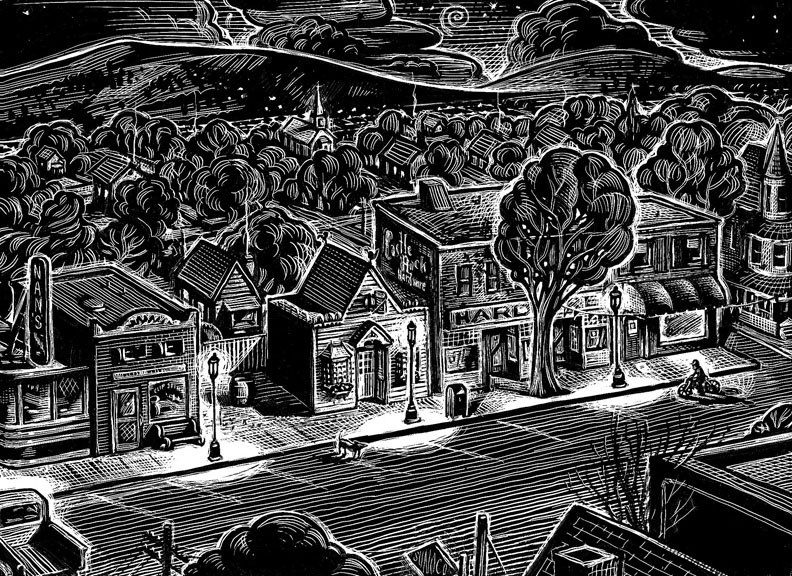Words from a Master: On Writing by Stephen King
While browsing at the legendary and beloved Strand bookstore in Manhattan several weeks ago, I picked up a copy of Stephen King’s On Writing for a birthday present for my friend (and sometimes collaborator). For years, bookstore clerks have recommended this book to me, so I bought a copy for myself, too. Preparing for the publication of my own first book, I knew that I might need Mr. King’s advice.
On Writing stands as a compelling, encouraging, and useful guide for any aspiring or frustrated writer. Three sections comprise the book: an autobiographical musing by King on his road to a successful literary career; a philosophical and practical guide on the writing craft; and King’s reflections on his near fatal accident and how writing nudged him toward recovery.

Illustration by Bill Russell for the 1991 Viking Press edition of Needful Things.
Immediately after cracking the book’s cover, I found myself engrossed. I underlined insightful passages and scribbled notes in the margins. King’s recollection of penning his earlier stories and novels as he struggled to support his young family captured my imagination. His success was anything but certain; indeed, it appeared to be doubtful, if not impossible. However, King loved writing, sewing together characters, and building stories. Through disappointment and failure, he carried on and wrote away.
Throughout On Writing, King discussed his development of specific characters and novels. While reading this book, I found myself thinking about favorites scenes and plot points from King’s extensive bibliography. I recalled reading It in the weeks following sixth grade, right before moving to my father’s house. I remembered finishing The Shining during an autumn weekend when I was fifteen. Between seventh and ninth grade, I borrowed every title by King from the public library. King helped me form my literary imagination and pushed me to think of myself as a writer. Through scores of rejection letters and stubborn periods of imaginative sterility, I never shed this identity.
Practically speaking, On Writing provided me with tips on structuring my writing hours and conceiving of fiction and non-fiction. More importantly, the book rekindled my interest in Stephen King’s books. In the coming months, I plan on returning to his novels for the first time in nearly twenty years. I am worried how I will receive his writings–that I will find them lacking–and that such an unwelcome discovery will tarnish my memories of my early love for Mr. King’s works. Yet, isn’t this the risk in revisiting any element from our past, whether it be a book, an old friend, or a childhood home? Isn’t anything worthwhile carry such a danger?
On Writing reintroduced me to Mr. King. Which of his books will spark the next movement in our conversation? I’ll soon find out.